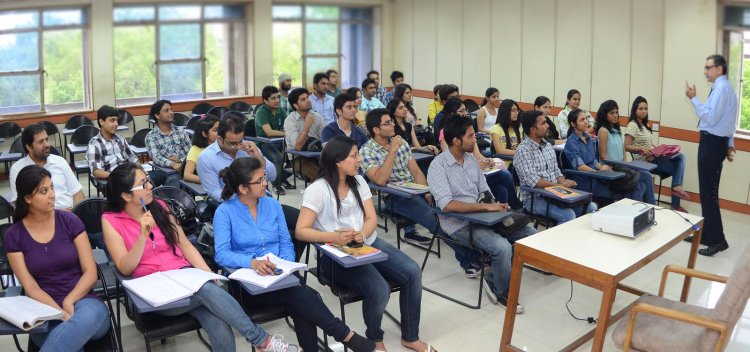PGDM in Banking and Finance vs. PGDM in Business Management
Post Graduate Diploma in Management (PGDM) is a beneficial step ahead in careers for graduates. There are many options available for this course.
Share this Post to earn Money ( Upto ₹100 per 1000 Views )

Post Graduate Diploma in Management (PGDM) is a beneficial step ahead in careers for graduates. There are many options available for this course. The most prominent options are PG Diploma in Banking and Finance and PGDM in Business Management. Both programs offer unique benefits and cater to different career aspirations. This article aims to provide a comparative analysis of these two programs, highlighting their key differences and benefits.
Specialization – Focused Expertise vs. Versatile Skillset
One of the primary distinctions between PGDM in Banking and Finance and PGDM in Business Management lies in their specialization. PGDM in Banking and Finance equips students with specialized knowledge and skills specifically tailored for this sector. Students enrolling in the course will learn about financial markets, risk management, corporate finance, and banking operations. Students can gain a comprehensive understanding of the intricacies of the financial domain through these subjects.
A PGDM program in Business Management, however, offers a broader range of topics. The curriculum encompasses a variety of management disciplines. Some of them are marketing, human resources, operations, and strategy. This program trains professionals with comprehensive learning. This makes them capable of handling a variety of business functions. This helps in pursuing careers in a wide variety of fields.
Career Opportunities – Financial Institutions vs.Multifaceted Industries
The specialization offered by PGDM in Banking and Finance opens up lucrative career opportunities within the financial sector. Graduates from the best PGDM College have multiple opportunities in companies like banking institutions, investment firms, insurance companies, and other financial organizations. These professionals have in-depth knowledge of financial markets, risk assessment, and banking operations. These skills make them well-equipped to handle roles like financial analysts, investment bankers, risk managers, and credit analysts.
In contrast, PGDM in Business Management graduates possess a versatile skillset that makes them suitable for a diverse range of industries. They can seek employment in sectors like consulting, FMCG, technology, healthcare, and more. The program nurtures leadership and managerial abilities, preparing graduates for roles such as marketing managers, operations managers, business consultants, and entrepreneurs.
Curriculum – Quantitative Rigor vs. HolisticBusiness Education
The curriculum of post graduation in Banking and Finance has significant emphasis on quantitative analysis and financial modeling. Students delve into subjects like financial accounting, investment analysis, derivatives, and econometrics. This quantitative rigor equips them with the necessary skills to make informed financial decisions, analyze market trends and manage risks effectively.
PGDM in Business Management offers a comprehensive business education covering various subjects. The curriculum includes marketing management, organizational behavior, supply chain management, business strategy, and entrepreneurship courses. Students gain a holistic understanding of business operations, learning to think strategically, solve complex business problems and adapt to dynamic market environments.
Industry Exposure – Immersion Programs vs.Corporate Internships
To complement the theoretical knowledge gained during their respective programs, both PGDM in Banking and Finance and PGDM in Business Management offer industry exposure opportunities.
PGDM in Banking and Finance programs often includes immersion programs. A student enrolling in this program spends a considerable amount of time in financial institutions. They get to work on real-world projects and gain hands-on experience. This immersive approach helps students in bridging the gap between theory and practice. It also fosters a deeper understanding of the banking and finance industry.
In contrast, Business Management Diploma programs typically include corporate internships, allowing students to work with established companies in various sectors. These internships provide valuable insights into the business world, allowing students to apply their theoretical knowledge in practical settings and develop essential professional skills.
Conclusion
Choosing between PGDM in Banking and Finance and PGDM in Business Management depends on an individual's career aspirations and interests. While PGDM in Banking and Finance offers specialized knowledge for a career in the financial sector, PGDM in Business Management provides a broader skillset suitable for diverse industries. Ultimately, both programs are designed to equip graduates with the skills and knowledge required to excel in their chosen fields, and the decision should be based on personal career goals and preferences.







